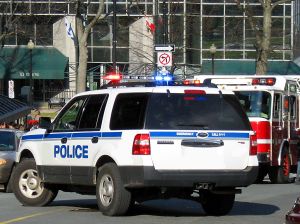 Police departments around the country are planning to ramp up their DUI detection and suppression efforts for the big game this weekend. Cops will deploy more road patrol officers than normal, and set up numerous checkpoints around the country this coming Sunday. These patrols and checkpoints will focus on popular nightlife areas and suburban neighborhoods where millions will be hosting or attending parties. Baltimore will likely see a large police presence in the downtown area, as thousands of Ravens fans will be out watching and celebrating the hometown team. The best piece of advice for any party goer who plans on drinking is to walk, take public transportation, or cab it. But, as most Marylanders are aware the state’s public transportation system and taxi cab network is hardly to most accessible, so driving is usually the only option. Get a designated driver, and try to find one that’ll be able to resist the temptation to drink when the Ravens are playing well, playing poorly, or doing both from one play to the next.
Police departments around the country are planning to ramp up their DUI detection and suppression efforts for the big game this weekend. Cops will deploy more road patrol officers than normal, and set up numerous checkpoints around the country this coming Sunday. These patrols and checkpoints will focus on popular nightlife areas and suburban neighborhoods where millions will be hosting or attending parties. Baltimore will likely see a large police presence in the downtown area, as thousands of Ravens fans will be out watching and celebrating the hometown team. The best piece of advice for any party goer who plans on drinking is to walk, take public transportation, or cab it. But, as most Marylanders are aware the state’s public transportation system and taxi cab network is hardly to most accessible, so driving is usually the only option. Get a designated driver, and try to find one that’ll be able to resist the temptation to drink when the Ravens are playing well, playing poorly, or doing both from one play to the next.
Police departments tend to send out press releases about increased DUI patrols because their publicly stated goal is to prevent drunk driving. But for the road patrol officers out on the street who aren’t able to watch the game, their goal is to make arrests. Many false or illegal DUI arrests occur on holidays or during large events when cops are on high alert. You can be sure that police will be quick to arrest after a traffic stop or at a checkpoint throughout the day and night on Sunday at the first hint of alcohol. Simply having a few drinks and then driving is not illegal. For police to make and arrest, a driver must either have a blood alcohol level of at least .08 or display to the stopping officer that they are intoxicated or under the influence to the extent that their faculties are impaired. It is not illegal to smell like beer and get behind the wheel, so it is important to know your rights if you happen to be pulled over.
Continue reading →
 Criminal Defense Lawyer Blog
Criminal Defense Lawyer Blog


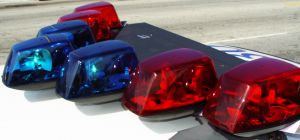 The Thanksgiving holiday week is one of America’s favorite times of the year. During the day we eat our turkey, play and watch football, and take advantage of all the Black Friday shopping sales. But the Thanksgiving week and weekend is also known as a popular nightlife time. In fact, the Wednesday before Thanksgiving is the single most popular bar night of the year, and the Friday and Saturday after are not far behind. And whenever there is a party, you can be sure that police are not far behind to come crash it. The Maryland State Police recently made an attempt to crash the holiday week party by ramping up patrols across the state’s highways. Police were specifically targeting the roads in and out of popular nightlife spots and conducted almost 9,000 traffic stops over the holiday weekend. Out of the 9,000 traffic stops, nearly 100 resulted in an arrest for DUI. Close to 60 people were arrested or cited with drug offenses by state troopers, and over 100 were arrested for other crimes. Police also reported that 3 guns were confiscated during the traffic stops.
The Thanksgiving holiday week is one of America’s favorite times of the year. During the day we eat our turkey, play and watch football, and take advantage of all the Black Friday shopping sales. But the Thanksgiving week and weekend is also known as a popular nightlife time. In fact, the Wednesday before Thanksgiving is the single most popular bar night of the year, and the Friday and Saturday after are not far behind. And whenever there is a party, you can be sure that police are not far behind to come crash it. The Maryland State Police recently made an attempt to crash the holiday week party by ramping up patrols across the state’s highways. Police were specifically targeting the roads in and out of popular nightlife spots and conducted almost 9,000 traffic stops over the holiday weekend. Out of the 9,000 traffic stops, nearly 100 resulted in an arrest for DUI. Close to 60 people were arrested or cited with drug offenses by state troopers, and over 100 were arrested for other crimes. Police also reported that 3 guns were confiscated during the traffic stops.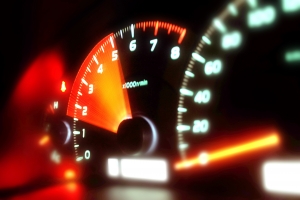 A Delaware resident was recently arrested on Maryland’s Eastern Shore after he allegedly led police on a multi county high speed chase. State Police troopers along with the Kent County Sheriffs Department collaborated in apprehending the suspect, who was charged with multiple traffic infractions and crimes. Some of the more serious crimes included fleeing and eluding, DUI, and negligent driving. The chase originated near Chestertown, which is the county seat, and largest city in Kent County. At about 2 in the afternoon, law enforcement received a call about a suspected drunk driver. Sheriffs responded to the area of the call, and one officer observed a Dodge Charger that matched the description in the call speeding along Route 213. The Officer initiated a traffic stop and made contact with the driver of the Charger. The contact with the Officer did not last long, as the driver took off at a high rate of speed.
A Delaware resident was recently arrested on Maryland’s Eastern Shore after he allegedly led police on a multi county high speed chase. State Police troopers along with the Kent County Sheriffs Department collaborated in apprehending the suspect, who was charged with multiple traffic infractions and crimes. Some of the more serious crimes included fleeing and eluding, DUI, and negligent driving. The chase originated near Chestertown, which is the county seat, and largest city in Kent County. At about 2 in the afternoon, law enforcement received a call about a suspected drunk driver. Sheriffs responded to the area of the call, and one officer observed a Dodge Charger that matched the description in the call speeding along Route 213. The Officer initiated a traffic stop and made contact with the driver of the Charger. The contact with the Officer did not last long, as the driver took off at a high rate of speed. 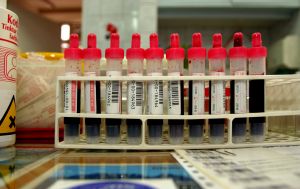 Compulsory or mandatory blood tests during the course of a DUI investigation have been a hotly debated legal topic over the last decade. The debate over whether cops should legally be able to force a DUI suspect to submit to a blood draw to measure blood alcohol level has been debated in Maryland, Delaware, and in almost every state in the county. Twenty years ago it would truly have been far fetched to predict that a state could one day grant its law enforcement officers the power to force a DUI suspect to submit to a blood test without a warrant, but now this idea is becoming a reality. Many Maryland beachgoers who happen to cross over into Delaware can find out the hard way about this harsh law.
Compulsory or mandatory blood tests during the course of a DUI investigation have been a hotly debated legal topic over the last decade. The debate over whether cops should legally be able to force a DUI suspect to submit to a blood draw to measure blood alcohol level has been debated in Maryland, Delaware, and in almost every state in the county. Twenty years ago it would truly have been far fetched to predict that a state could one day grant its law enforcement officers the power to force a DUI suspect to submit to a blood test without a warrant, but now this idea is becoming a reality. Many Maryland beachgoers who happen to cross over into Delaware can find out the hard way about this harsh law.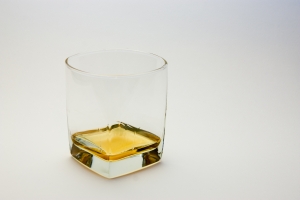 The previous blog post discussed the effectiveness of Maryland DUI checkpoints, and specifically focused on Howard County, Maryland. Howard County has long since been the most aggressive Maryland County when it comes to instituting and publicizing DUI checkpoints. This post will go into greater detail about yet another Maryland county choosing to make a news splash by instituting a DUI checkpoint during a holiday weekend. The cost and inconvenience of the latest Howard County DUI checkpoint arguably outweighed the actual benefit, but you would never hear anyone from Howard County police admit to that. On the other hand, police from this weekend’s Maryland DUI checkpoint in Worcester County may have spilled the beans on what they really think about the value of DUI checkpoints.
The previous blog post discussed the effectiveness of Maryland DUI checkpoints, and specifically focused on Howard County, Maryland. Howard County has long since been the most aggressive Maryland County when it comes to instituting and publicizing DUI checkpoints. This post will go into greater detail about yet another Maryland county choosing to make a news splash by instituting a DUI checkpoint during a holiday weekend. The cost and inconvenience of the latest Howard County DUI checkpoint arguably outweighed the actual benefit, but you would never hear anyone from Howard County police admit to that. On the other hand, police from this weekend’s Maryland DUI checkpoint in Worcester County may have spilled the beans on what they really think about the value of DUI checkpoints.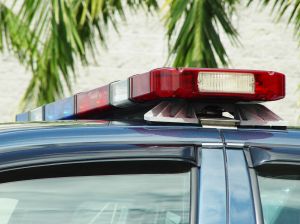 Howard County police recently set up a DUI checkpoint on Maryland Route 1. The checkpoint, which was located in North Laurel, began in the late evening on Friday night and extended into the early morning hours of Saturday. Police chose the location after examining DUI arrest data and traffic accident data where alcohol was involved. Howard County police did not release the exact hours of the DUI checkpoint, or how many officers were involved in the operation, but typical DUI checkpoints last roughly 6 hours and involve at least 10 police officers. Howard County did release the statistics of how many cars were stopped and how many arrests were made. In total, the DUI checkpoint resulted in 690 vehicles being stopped, and a total of 5 people being arrested. Of the 5 arrests, two were for driving on a suspended license, and 3 arrests were for DUI. One of the suspects arrested for DUI was 18 years old, and was also charged with a separate alcohol charge of underage drinking.
Howard County police recently set up a DUI checkpoint on Maryland Route 1. The checkpoint, which was located in North Laurel, began in the late evening on Friday night and extended into the early morning hours of Saturday. Police chose the location after examining DUI arrest data and traffic accident data where alcohol was involved. Howard County police did not release the exact hours of the DUI checkpoint, or how many officers were involved in the operation, but typical DUI checkpoints last roughly 6 hours and involve at least 10 police officers. Howard County did release the statistics of how many cars were stopped and how many arrests were made. In total, the DUI checkpoint resulted in 690 vehicles being stopped, and a total of 5 people being arrested. Of the 5 arrests, two were for driving on a suspended license, and 3 arrests were for DUI. One of the suspects arrested for DUI was 18 years old, and was also charged with a separate alcohol charge of underage drinking. 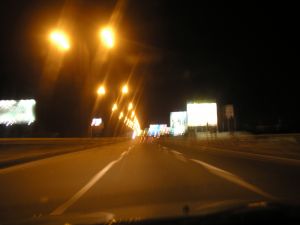 Talk about a rough night. A southern Maryland man was recently arrested for DUI and multiple other traffic offenses. Police came in contact with the man after he was pulled over for unsafe lane changing. Upon contacting the man, the Maryland State Trooper noticed the odor of an alcoholic beverage coming from the driver’s breath. After conducting a DUI investigation, the trooper arrested the man and charged him with DUI, negligent driving, and unsafe lane change. The driver was also given a breathalyzer test at the police station, where his blood alcohol content registered .15, nearly twice the legal limit. A DUI arrest and multiple traffic tickets would certainly have ruined anyone’s evening, but the southern Maryland man’s night was far from over at this point.
Talk about a rough night. A southern Maryland man was recently arrested for DUI and multiple other traffic offenses. Police came in contact with the man after he was pulled over for unsafe lane changing. Upon contacting the man, the Maryland State Trooper noticed the odor of an alcoholic beverage coming from the driver’s breath. After conducting a DUI investigation, the trooper arrested the man and charged him with DUI, negligent driving, and unsafe lane change. The driver was also given a breathalyzer test at the police station, where his blood alcohol content registered .15, nearly twice the legal limit. A DUI arrest and multiple traffic tickets would certainly have ruined anyone’s evening, but the southern Maryland man’s night was far from over at this point.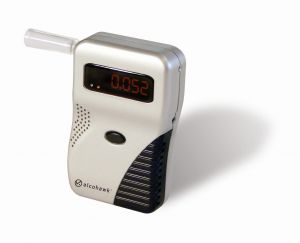 Breath alcohol tests for drivers suspected of DUI could resume in Washington D.C. as early as next month. Washington was forced to suspend its breath alcohol testing program in drunk driving cases after lawyers of convicted DUI defendants filed dozens of lawsuits challenging the validity the test results. Four of these lawsuits ended in settlements against the city, and other civil lawsuits are still pending. The city eventually admitted that its employees provided inaccurate breathalyzer test results to city prosecutors that were used as evidence in DUI cases. Just as in Maryland, Washington breath technicians are required to conduct and document regular maintenance testing for breath alcohol testing machines, but D.C. techs were neglecting to perform these maintenance tests. In some cases breath technicians were even providing false documentation to prosecuting lawyers that was directly used to prove DUI cases.
Breath alcohol tests for drivers suspected of DUI could resume in Washington D.C. as early as next month. Washington was forced to suspend its breath alcohol testing program in drunk driving cases after lawyers of convicted DUI defendants filed dozens of lawsuits challenging the validity the test results. Four of these lawsuits ended in settlements against the city, and other civil lawsuits are still pending. The city eventually admitted that its employees provided inaccurate breathalyzer test results to city prosecutors that were used as evidence in DUI cases. Just as in Maryland, Washington breath technicians are required to conduct and document regular maintenance testing for breath alcohol testing machines, but D.C. techs were neglecting to perform these maintenance tests. In some cases breath technicians were even providing false documentation to prosecuting lawyers that was directly used to prove DUI cases. 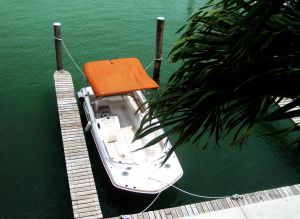 With the summer boating season in full swing, the Maryland natural resource police is charged with the daunting task of keeping the state’s waterways safe. Enforcing Maryland’s DUI laws out on the water is one way that the natural resource police can accomplish this objective. The Maryland state police, and local police departments across the state devote a great deal of effort to maintain or increase the amount of drunk driving arrests each year. This is in part to send a message to the public that drunk driving will not be tolerated out on Maryland’s roads. Each summer, the natural resource police attempts to send the same message that driving a boat while under the influence of alcohol or drugs will not be tolerated on Maryland’s waters. If you decide to venture out on the 17,000 miles of river or the 1,700 square miles of Chesapeake Bay, chances are that you will encounter a Maryland natural resource police officer. In order to prepare for one of these encounters, it is important for boaters to understand how Maryland’s drunk driving laws apply to boaters.
With the summer boating season in full swing, the Maryland natural resource police is charged with the daunting task of keeping the state’s waterways safe. Enforcing Maryland’s DUI laws out on the water is one way that the natural resource police can accomplish this objective. The Maryland state police, and local police departments across the state devote a great deal of effort to maintain or increase the amount of drunk driving arrests each year. This is in part to send a message to the public that drunk driving will not be tolerated out on Maryland’s roads. Each summer, the natural resource police attempts to send the same message that driving a boat while under the influence of alcohol or drugs will not be tolerated on Maryland’s waters. If you decide to venture out on the 17,000 miles of river or the 1,700 square miles of Chesapeake Bay, chances are that you will encounter a Maryland natural resource police officer. In order to prepare for one of these encounters, it is important for boaters to understand how Maryland’s drunk driving laws apply to boaters.